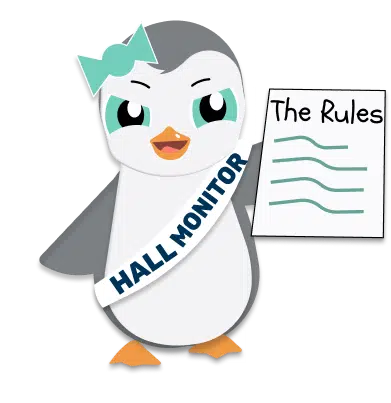There’s no denying that being a parent is a rollercoaster ride, both for you and your growing child. With every new stage comes a swarm of changes, and when your child reaches five years old, they suddenly seem to be experiencing a whirlwind of emotions. As parents, how can we support our neurodivergent kids during this critical phase of emotional development? We’re here to help! This blog will shed light on crucial milestones, practical tips, and strategies to foster emotional growth and regulation in your youngster.
Table of Contents
Emotional Milestones: Knowing What to Expect
Like any journey, it’s essential to know the milestones. Understanding the typical emotional development in 5-year-olds will help you set realistic expectations and recognize potential challenges. Let’s look at the key milestones to monitor:
- Increased self-awareness: Kids start focusing on their feelings and needs, taking pride in their achievements.
- Improved emotional expression: They begin using words to describe feelings more accurately, sharing emotions clearer.
- Developing empathy: Children start to understand and respect others’ feelings, demonstrating concern for those around them.

Fostering Emotional Regulation in Neurodivergent Kids
Much of emotional development hinges on nurturing emotional regulation in children. Here are three powerful strategies to help your neurodivergent child conquer this essential skill:
Encourage Healthy Emotional Expression
Just like learning to walk or talk, kids need guidance to express their feelings healthily. Here’s how:
- Listen and validate: Empathetically acknowledge your child’s emotions as valid, ensuring they truly feel heard.
- Create a safe space: Provide an environment where they can express themselves without fear of judgment or criticism.
- Model appropriate behavior: Demonstrate constructive handling of emotions to set a positive example for your child.
Introduce Coping Strategies
Help your child develop coping techniques for managing emotions. Here are three strategies to try:

Read more: 3 Educational Tablets for 5 Year Olds
- Deep breathing exercises: Teach your child to focus on slow, deep breaths to calm their mind and body.
- Grounding techniques: Encourage them to stay present, engaging in activities like counting or naming items around them.
- Practice gratitude: Help your child appreciate the good things in their life, nurturing a positive perspective.
Establish Routines
Consistent routines provide structure and security. These can make a noticeable difference in emotional stability:
- Morning and bedtime rituals: Implement routines to provide a sense of predictability and consistency.
- Provide a visual schedule: Display your child’s daily activities to help them feel prepared and in control.
Building Empathy in Kids with Thinking and Learning Differences
Empathy is a vital skill within emotional development in 5-year-olds. For kids with thinking and learning differences, it could be challenging to develop. Let’s explore ways to cultivate empathy in your child:
- Social storytelling: Stories provide opportunities for children to understand emotions and perspectives of others.
- Role-playing activities: Let your child act out different scenarios, navigating various emotions and viewpoints.
- Make connections: Discuss situations where empathy made a difference, demonstrating its importance and power.

Read more: How to Parent a Child With ADHD and Autism
Collaboration with Educators and Therapists
Raising a neurodivergent child is a team effort, and collaboration with educators and therapists is fundamental. Cooperation ensures consistent development of emotional regulation and empathy across environments:
- Share strategies: Talk about home techniques with your child’s teachers or therapists to reinforce the same methods elsewhere.
- Seek guidance: Involve professionals in creating an individualized plan toevaluate and support your child’s emotional growth.
Celebrating Progress and Achievements
Finally, remember to celebrate your child’s progress and accomplishments. Here are some ways to express appreciation:
- Praise their efforts: Offer specific, targeted praise to demonstrate you acknowledge their hard work.
- Visual rewards: Use reward charts to celebrate even small achievements, boosting motivation and pride in their growth.

Goally | Apps That Build Behavior & Life Skills for Kids
Want to keep your child motivated while building essential behavior and life skills? Goally’s skill-building tablet is designed to celebrate small wins and help your child grow.
Our Behavior Tracker helps you reward your kiddo for specific skills, like “being kind” or “flushing the toilet.”
By setting clear expectations and rewarding their efforts, you foster a positive environment for your child to flourish in their behavioral skills journey.

In short, patience, consistency, and applying the strategies we’ve shared will put you on the right track to support the emotional development in 5-year-olds. Together, you and your neurodivergent child can navigate the vast ocean of emotions and set sail for a brighter, more fulfilling future.
This post was originally published on 05/28/2023. It was updated on 08/14/2023.

Goally
We help parents teach their kids life skills, like doing bedtime and morning independently. Backed by science, we incorporate evidence-based practices and expert-informed designs in all of our apps and content.





